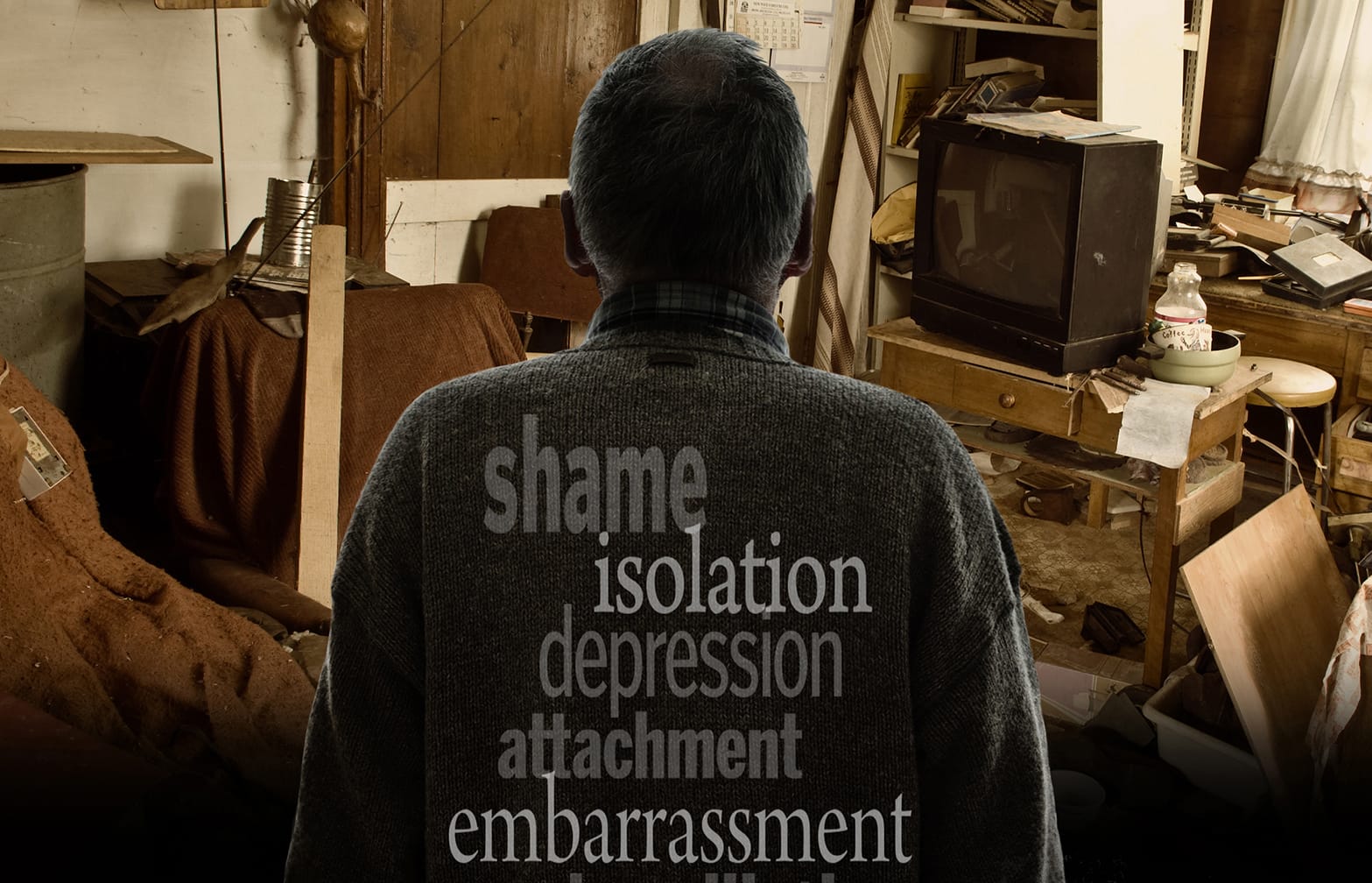Doug showers at Marshall Community Center because his bathtub is filled with bins of clothing. He eats standing up because the counters and chairs in his kitchen are covered with so much stuff that he can’t sit down.
Though he hasn’t been clinically diagnosed, Doug said he likely qualifies as a hoarder.
“There’s a lot of shame in what I experience on a day-to-day basis,” said Doug, who agreed to speak with The Columbian on the condition that we wouldn’t use his full name. “I don’t feel like a full person. I constantly distance myself from people and isolate myself.”
But getting rid of the things that clutter his Vancouver home is the hardest part.
Getting help
Dr. Sanjaya Saxena, director of University of California San Diego’s Obsessive-Compulsive Disorders Program, has researched and treated hoarding for more than 20 years. He advises those looking for resources on hoarding visit https://hoarding.iocdf.org.
Though Saxena does not believe 12-step programs work for those who are suffering from a psychological disorder, he does believe they can help those who clutter their homes for other reasons.For more information on the Vancouver chapter of the Clutterers Anonymous, call Gayle, 360-430-3347 or Jill, 541-731-3816.
“A lot of stuff I have no need for, but they’re part of who I was,” Doug said. “There’s an attachment to me that’s hard to sever from. … Part of me feels that if I’m letting go of these symbols of who Doug was, I am dying. There’s a fear of death.”
The American Psychiatric Association characterizes hoarding as the persistent difficulty in discarding or parting with possessions, regardless of the possessions’ value. What sets hoarders apart from normal collecting behaviors, the association states, is the quantity of the items. Hoarders accumulate a large number of possessions that often fill up or clutter active living space of the home or workplace to the extent that their intended use is no longer possible.
For decades, hoarding was classified as a symptom of obsessive compulsive personality disorder as well as a subtype of obsessive compulsive disorder.
However, in 2013, the APA reclassified hoarding as its own distinct disorder in the Diagnostic and Statistical Manual of Mental Disorders.
Dr. Sanjaya Saxena, director of University of California, San Diego’s Obsessive-Compulsive Disorders Program, who has researched and treated hoarding for more than 20 years, said that when this happened, the response among patients was overwhelmingly positive.
“They didn’t feel like they had OCD,” he said. “They recognized that their symptoms were different, and they were glad to see it finally recognized as its own problem.”
Even though the medical community has recognized hoarding as a psychiatric disorder, it remains something that is largely misunderstood in American society, Saxena said.
Hoarding is associated with laziness and messiness, he said, rather than recognized as a treatable mental health condition.
“Fire departments and housing authorities don’t refer for treatment,” he said. “We’re fighting a battle here. When it’s a new disorder, it takes a long time for the knowledge and understanding to seep into the general public at large.”
Saxena said people who have the hoarding disorder keep things for two reasons: utility and sentiment. However, he said, that thought process for someone with hoarding disorder is exaggerated to the point that it’s not in proportion to reality.
Even though it is treatable, Saxena said that there is also a lack of resources when it comes to helping those who have hoarding disorder.
When people go online to look up local help for hoarding, they are met with websites for 12-step programs such as Clutterers Anonymous and professional organizers.
Saxena said that the Clutterers Anonymous group can help if they promote cleaning and decluttering, but he cautions against these programs because they treat hoarding like an addiction.
Professional organizers, he said, also don’t help the root of the problem, because the hoarder is not the one taking the action.
“They treated the house and not the person,” he said. “Part of the therapy is focused on helping the person learn that they can make decisions on what to keep and what to throw away, they can discard (things) without fear.”
The first thing Saxena advises people to do if they think they might have hoarding disorder is to seek out a therapist or psychiatrist who has experience with hoarding. Saxena said that an evaluation will determine if they fit the diagnosis.
From there, he said, treatment includes medicine and cognitive behavioral therapy. The International OCD Foundation has a page dedicated to hoarding and includes a search engine to help find therapists, clinics and groups, organizations and support groups.
Saxena adds that there are far too few clinicians with the specialized training on that list.
“Unfortunately, there’s a real serious shortage of trained skillful clinicians who know how to treat hoarding,” he said.
Though hoarding is a disorder, Saxena said that not everyone who lives in a cluttered home is a hoarder — which is where the diagnosis comes in. Other disorders or health conditions can also result in cluttering.
Trish Palin, 73, of Vancouver said that she’s never been diagnosed as a hoarder but has she lived in clutter since she was in her 30s.
She said that she has a compulsion to shop and has accumulated large amounts of clothing.
“Shopping sometimes gives you a high,” she said. But after she brings the items home, she said she often realizes she can’t afford what she’s paid for and has no place to put it. Her apartment is crowded with stuff to the point that she has created a path from her door to her bed.
“I practice a lot of avoidance,” Palin said. “It does overwhelm me to be in my apartment.”
She started attending Clutterers Annonymous in Vancouver three years ago and said that knowing she’s not alone and admitting she has a problem has helped.
Palin said she has seen different ways to live and has downsized from two storage units to one within the past year. She said she still has a long way to go, but that she feels like she’s made progress in achieving a healthier lifestyle.
“I’ve stopped shopping, I stop taking things people want to give me,” she said. “I wanted to make my life joyful and liveable and the clutter was not adding to any joy or any hope … It feels good.”




